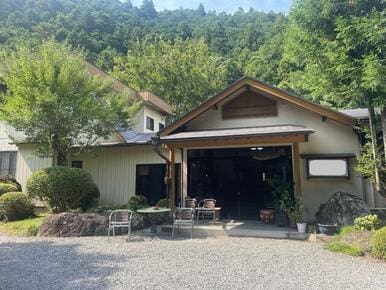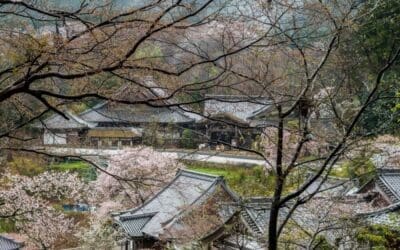A recent Reddit post starkly revealed a critical truth about Japan’s real estate market. A hopeful buyer confessed their frustration after months of searching for a realtor for bargain Akiya houses in Morioka, only to be rejected by every agent they contacted. This experience is a common one, highlighting a deep misconception among foreign investors lured by impossibly low price tags on a vacant Akiya. The reality is that expert Pro Help is not just an option but a necessity.
Unlocking the true potential of these properties requires far more than the initial purchase price. It demands a strategic budget for professional services and a steadfast commitment to projects that others have wisely ignored. This guide deconstructs the illusion of the bargain and provides a clear playbook for making a smart, successful investment in Japan’s unique property landscape.
The "Bargain" Illusion: Deconstructing the Hidden Costs
Why That ¥300,000 Farmhouse is Anything But Cheap
A farmhouse listed for ¥300,000, viewed from a screen thousands of miles away, seems absolutely irresistible. However, this perception is a dangerous illusion. Beneath that so-called “bargain” lies a network of significant liabilities. These hidden costs can quickly accumulate, dwarfing the initial investment and turning a dream into a financial nightmare. Consequently, understanding these factors is the most critical first step in assessing any of the bargain Japanese properties you find online. Without professional guidance, you are navigating a minefield blindfolded. The price reflects the property’s problems, not its potential value.

Unseen Liabilities: What Your Budget Must Cover
The primary reason these Akiya houses are so cheap is the extensive structural decay and deferred maintenance they harbor. Many of these homes have been neglected for decades, left to the mercy of Japan’s notoriously humid climate, which is particularly harsh on traditional wooden structures. This leads to a predictable set of expensive issues that require immediate and costly attention. Before you even consider a purchase, your budget must account for these potential liabilities.
Navigating the Regulatory Minefield
Why local laws can make or break your investment
Buying one of these vacant Japanese houses is merely the first hurdle. The second, and often more challenging, is navigating the complex web of local and national regulations. This is where Pro Help from experienced Japanese real estate services becomes absolutely indispensable. These rules are designed to protect communities, but they can easily trap a naive investor in a project that is legally and financially unviable.
A prime example is the property designation known as saikenchiku fuka. This critical classification, often buried in documents an untrained eye would never understand, means you are legally forbidden from rebuilding on the land if you tear down the existing structure. This single detail completely alters the long-term value and potential of the property. Without the ability to rebuild, the land’s value is drastically reduced, turning a potential dream home into a permanent, depreciating asset.
Furthermore, navigating heritage rules, agricultural land laws (nōchi-hō), and specific zoning overlays also requires specialized consultants. Each municipality has its own distinct set of rules that can impact everything from the color you can paint your home’s facade to the type of business you can legally operate on the premises. Attempting to manage this labyrinth without expert legal and real estate services is a recipe for disaster.
The Importance of Expert Vetting and Pro Help
Why you can't find the best properties on your own
To find truly viable properties, you must move beyond generic, picked-over international listing websites. The best Akiya houses are often unlisted and trade hands through trusted local networks. Therefore, a proactive search process guided by professional services is essential for finding these hidden gems. The widely advertised bargain properties are often the ones that have already been rejected by locals who know better.
Real opportunities are found through municipal Akiya banks and, more importantly, through established local relationships. A skilled real estate professional with deep community ties will hear about available properties long before they are ever listed publicly. They talk to community leaders, families, and local officials directly. This insider access is not just a benefit; it is a critical strategic advantage that Pro Help provides.
Rigorous due diligence is completely non-negotiable. Your team must map official “hazard zones” to check for risks of flooding, typhoons, or landslides.kominka), as they can spot severe issues that a Western-trained inspector would certainly miss. This expert vetting is a core component of good real estate services and is essential for filtering out unsafe or financially disastrous Akiya houses.
From Purchase to Profit: The Long-Term Project
The real work begins after you get the keys
Once you own one of these vacant Japanese houses, the project has just begun. The renovation and management phase is where true value is either created or lost. This stage requires the most professional oversight and is where your initial investment will truly be tested. Comprehensive real estate services extend far beyond the initial purchase and into this crucial, value-adding phase.
A full-service firm will manage the entire renovation process. This includes finding and coordinating carpenters skilled in traditional techniques, securing the proper municipal permits, and ensuring all work meets Japan’s strict building and earthquake-resistance standards. This level of project management is crucial for keeping your renovation on budget and on schedule. Without it, costs can spiral, and timelines can stretch indefinitely.
If your goal is to generate rental income, the work continues. Ongoing management services will handle everything from creating compelling property listings and professional marketing to managing bookings, guest communications, and routine maintenance. This is how you transform one of the seemingly cheap Akiya houses into a profitable, cash-flowing asset that provides lasting value. The “bargain” is not in the purchase price; it is created through smart, professionally managed post-purchase execution.



